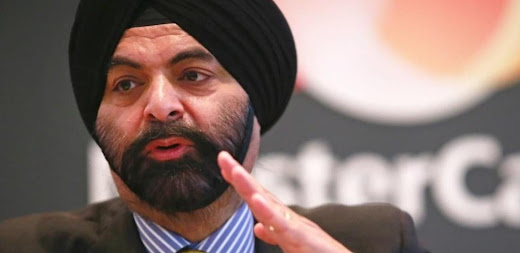What Are Challenges Ahead For Ajay Banga First Indian-American To Be Elected World Bank President
New Delhi: American citizen of Indian origin Ajay Banga will be the next President of the World Bank. He will replace David Malpass on June 2.
Banga became the first Indian-American to be elected as World Bank (WB) President. Pune-born Ajay Banga was also felicitated with the Padma Shri by the Indian government in 2016 in the field of trade and industry.
The former executive officer (CEO) of Mastercard Inc. was endorsed by US President Joe Biden last month. India supported the candidature of Mr. Banga for the post of President of the World Bank.
Born in Pune, Banga did his primary schooling from St. Edward's School in Shimla in the 70s. His father was an officer in the army. During this, he was posted in Shimla for some time, when Mr. Banga was admitted to St. Edward's School, Shimla.
Sixty-three-year-old Mr. Banga was nominated by US President Joe Biden as the next President of the World Bank. In an open letter of support, 55 lawyers, academicians, executives, veterans and former government officials supported the nomination for the post of President of the World Bank. There were many Nobel laureates among those who supported him.
Biden congratulated Banga on his "resounding approval" to run the World Bank, which he described as "one of humanity's most critical institutions to reduce poverty and expand prosperity around the globe."
CHALLENGES
The Indian-born finance and development expert Banga faces the immediate responsibility to revamp the WB to tackle climate change and other global crises.
Banga's election came at a critical moment marked by emerging debt distress in emerging economies and ongoing problems in food and energy markets as a result of Russia's war in Ukraine.
Ajay Banga will lead the Bank as it evolves and expands to address global challenges that directly affect its core mission of poverty reduction — including climate change.
The Bank already loans out hundreds of billions of dollars to developing nations but is working to increase its lending to help them tackle overlapping global challenges such as climate change, conflict and brace for future pandemics.

